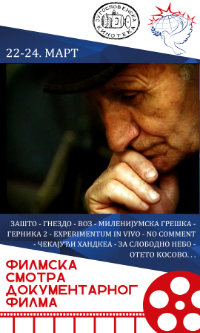Владимир И. Јакуњин: СТАВОВИ И ОЦЕНЕ
Из завршне речи Владимира И. Јакуњина на Међународној конференцији „Први светски рат – поруке човечанству“, 18. септембра 2014. Опираясь на осмысление уроков Первой мировой войны и осознавая угрозы новой военной эскалации, участники Конференции в ходе всесторонней дискуссии рассмотрели вопрос о необходимости противодействиия тенденциям, ведущим человечество к новым катастрофам. Neil Clark: WORLD WAR ONE- AND HOW WE CAN END TODAY'S WORLD WAR THREE
Neil Clark The centenary of the outbreak of hostilities in World War One, was commemorated by special events in Belgium attended by among others the British Prime Minister David Cameron and members of the British Royal family. At a service at Westminster Abbey members of the UKs political elite sat solemn faced as first hand testimony of war experiences and moving war poetry was read out by distinguished actors. Jean Bricmont: The easy lesson of World War I.
Jean Bricmont, Belgium
There at least two things that are easier to start than to end: a love affair and a war. No participant in WWI expected it to last as long as it it did or to have the consequences that it had. All the empires that participated in the war were destroyed, including eventually the British and French ones. Not only that, but one war leads to another. The British philosopher and logician Bertrand Russell remarked that the desire of the European monarchs to crush the French Revolution led to Napoleon; the Napoleonic wars produced German nationalism that itself led to Bismarck, the French defeat at Sedan and the annexation of Alsace-Lorraine. That in turn fueled French revanchism that gave rise, after World War I, to the Versailles Treaty, whose inequities gave a strong boost to Nazism and Hitler. Russell ended the story there, but it continues. Hitler's defeat gave rise to the Cold War and the creation of Israel. The Western “victory” in the Cold War led to the current desire to crush Russia once and for all. As for Israel, its creation produced endless strife and an intractable situation in the Middle East. What is the way out of this dialectic? I would suggest the idea of institutional pacifism. Not pacifism in the sense of refusing violence under any circumstance, or as amoral exhortation, but in the sense of building institutions that can help the preservation of peace. The United Nations and its charter, at least as it was originally conceived, is probably the best example of such an institution. The very starting point of the United Nations was to save humankind from “the scourge of war”, with reference to the two World Wars. This goal was to be achieved by defending the principle of the equal sovereignty of all states, in order to prevent Great Powers from intervening militarily against weaker ones, regardless of the pretext. But since there is no international police to enforce international law, it can only be enforced by a balance of power and, most importantly, by the pressure of the citizens of the various countries to constrain their governments to adhere to common rules. |
| Overstatement from Davos 2017. |
Liberal corporative capitalism, for reasons of lowering traveling costs, proposed not to travel to history alone but packed togather with NATO, EU and unipollar World Order. Workers participation has good chances to step in provisionally, buying time for full scale workers selfmanagment. |










